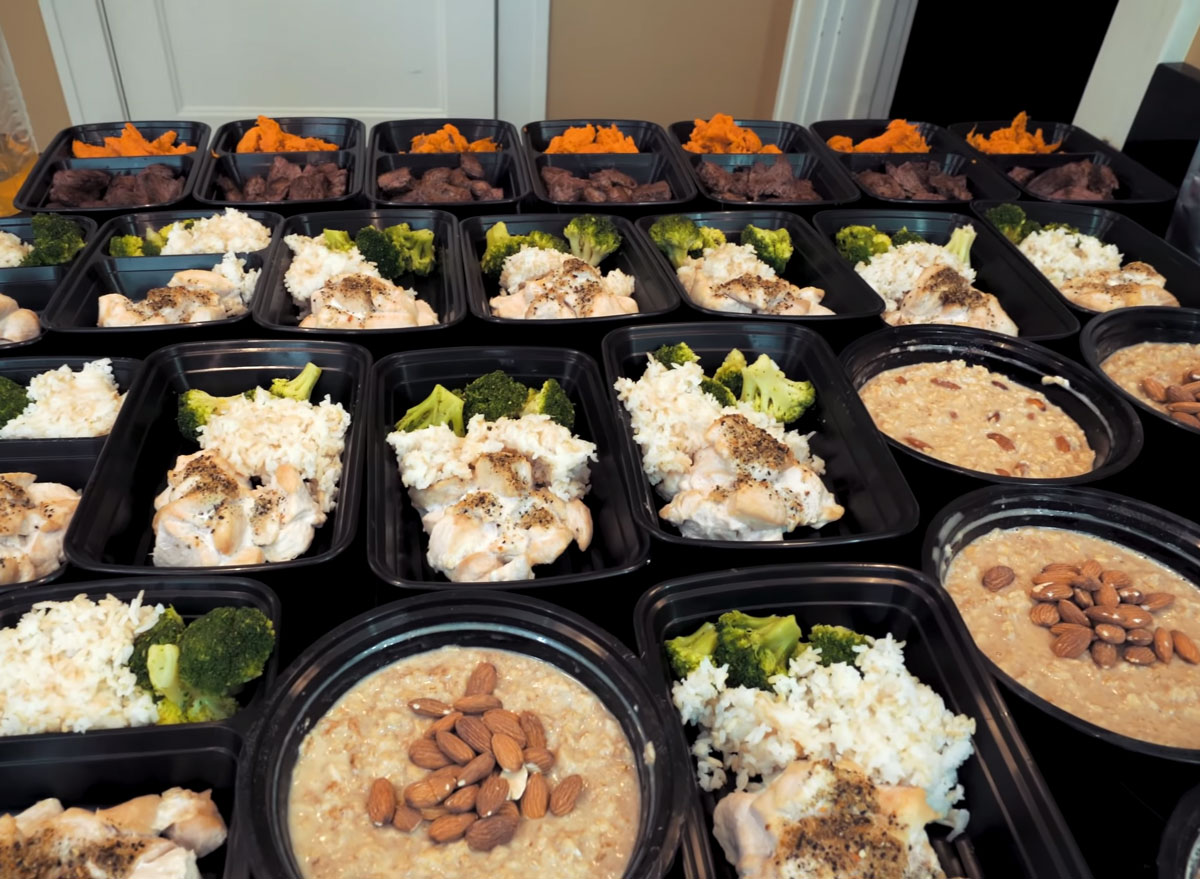Effective 30-Day Plant-Based Diet Plan to Enhance Health in 2025

Effective 30-Day Plant-Based Diet Plan to Enhance Health
In 2025, embracing a plant-based diet presents a myriad of health benefits, making it a popular choice for enhancing overall wellness. This comprehensive 30-day meal plan is designed not only to help you shed unwanted pounds but also to introduce a lifestyle that prioritizes clean eating and nutrient-rich foods. By incorporating fruits and vegetables, whole foods, and plant protein, you pave the way for improved health markers like lower cholesterol and enhanced energy levels.
Understanding the fundamentals of a plant-based diet is crucial. This guide will provide an easy-to-follow meal prep plan filled with vegan recipes, cooking tips, and essential grocery lists. With mindful eating practices and an emphasis on dietary fiber and healthy fats, you will navigate the journey toward better nutrition with confidence.
As you explore this 30-day meal plan, you'll gain insights into incorporating foods that support your health goals, boosting immunity and fostering heart health along the way. Let’s dive into the specifics of this nutritious journey!
Key Nutrients in a Plant-Based Diet
Building a strong foundation for your plant-based diet starts with understanding essential nutrients. While you may be cutting out animal products, it's vital to ensure you’re still receiving adequate vitamins and minerals. Key nutrients to consider include:
Plant Protein Sources
In a plant-based diet, protein can be derived from a variety of sources such as legumes, nuts, and seeds. Incorporating these foods ensures you maintain sufficient protein intake for muscle repair and overall health.
Popular plant proteins include lentils, chickpeas, quinoa, and tempeh. These ingredients can be easily added to meals or as bases in your recipes. For instance, a chickpea salad or a quinoa-stuffed bell pepper provides not only protein but also dietary fiber that aids digestion.
Healthy Fats for Optimal Wellness
Healthy fats are crucial for hormone production and absorption of fat-soluble vitamins. Sources like avocados, olive oil, and nuts should be staples in your kitchen. These fats support heart health while making meals satisfying.
Integrating healthy fats can be simple, such as drizzling olive oil over roasted vegetables or adding avocado to your morning smoothie. Not only do these swaps enhance flavor, but they also contribute to sustained energy levels throughout the day.
Understanding Fiber-Rich Foods
A high-fiber diet is linked to numerous health benefits, including weight management and improved digestive health. Fruits, vegetables, whole grains, and legumes are excellent sources of dietary fiber, helping you to feel full longer and aid in detoxification.
When planning your meals, consider including fiber-rich foods such as oats for breakfast or beans in your lunch. These foods can play a significant role in controlling cravings and promoting overall gut health.

If you’re transitioning from a traditional diet, it's beneficial to familiarize yourself with herb and spice pairings to enhance flavor profiles without resorting to unhealthy condiments. This brings us to the next stage of your plant-based journey: meal planning techniques.
Meal Planning Techniques for Success
Successfully adopting a plant-based diet hinges on strategic meal planning. A well-structured plan can alleviate the stress of daily meal decisions and helps maintain adherence to your dietary goals.
Creating a Grocery List
Your grocery list is fundamentally important for meal preparation. Focus on seasonal produce and pantry staples that support the week's menu. By planning ahead, you avoid the temptation of processed foods, ensuring your meals are nutrient-dense and wholesome.
Additionally, consider dividing your list by grocery sections, making shopping more efficient. This organized approach reduces the chance of impulse buys and improves your chances of sticking to a clean eating regimen.
Implementing Meal Timing Strategies
Timing your meals effectively can greatly influence your energy levels and metabolism. Aim for balanced meals throughout the day, ensuring you’re feeding your body to maximize nutrient absorption and minimizing feelings of hunger.
Consider eating smaller, more frequent meals instead of three large ones. This method can keep your metabolism active and control cravings, making it easier to maintain portion control, especially with decadent plant-based snacks.
Meal Diversity and Creative Cooking
Variety is key in any sustainable diet. Experimenting with different cooking methods, such as steaming, roasting, or sautéing, can transform how you perceive and prepare plant-based dishes. Embrace creative recipe modifications that allow you to explore ethnic plant-based cuisines, adding new tastes and experiences to your diet.
Incorporating seasonal ingredients not only improves flavor but also supports local farming efforts and nutritional diversity. For example, swapping out ingredients for seasonal produce keeps meals fresh and exciting.

Snacking and Hydration Tips
Healthy snacking is an essential component of a plant-based diet. It provides energy between meals and helps maintain focus and productivity throughout the day. However, choosing the right snacks is crucial.
Smart Plant-Based Snacks
Opting for fill-filling snacks such as hummus with vegetable sticks or a handful of nuts can keep hunger at bay without derailing your meal plan. Ensure every snack includes a combination of protein and healthy fats to keep your energy levels stable.
Consider preparing batch snacks ahead of time, such as energy balls made from oats, nut butter, and seeds. This not only makes snacking more convenient but also emphasizes mindful eating practices.
Staying Hydrated
Hydration is often overlooked but is critical for overall health and wellness. Drinking water regularly can support digestion, nutrient absorption, and even skin health. Aim to drink at least eight glasses of water a day.
You can also include herbal teas and infused waters with fruits or herbs for added flavor, which will encourage a consistent hydration habit. Establishing a routine around hydration can significantly benefit your energy levels and overall well-being.
Final Considerations for a Successful Transition
Transitioning to a plant-based diet requires patience and dedication. As you redefine your eating habits, stay focused on the many health benefits associated with plant-based eating. To wrap up your 30-day meal plan transformation, consider the following tips:
Adapting Traditional Recipes
Many traditional meals can be adapted into plant-based versions without losing flavor or comfort. Utilizing plant substitutes for meat and dairy gives you the chance to recreate family favorites while aligning with your health goals.
Experiment with legume-based sauces or vegan cheese alternatives in classic recipes. This way, you can maintain family traditions while promoting a healthier lifestyle.
Culinary Skills for Long-Term Success
Investing time into improving your cooking skills can significantly enhance your plant-based experience. Embrace cooking classes, watch online tutorials, and try new techniques to discover what works best for you and your tastes. Building confidence in the kitchen will inspire you to experiment more with ingredients and expand your recipe repertoire.
Q&A Section: Common Queries Regarding Plant-Based Diets
What are the benefits of a plant-based diet?
Adopting a plant-based diet can enhance heart health, promote weight loss, and reduce the risk of chronic diseases. Incorporating a well-rounded variety of whole foods improves nutrient intake and supports overall wellness.
How do I ensure I get enough protein?
Integrate diverse sources of plant proteins into your diet, including beans, lentils, and whole grains. Combining these with vegetables maximizes your amino acid intake, ensuring a well-rounded nutritional profile.
How can I avoid processed foods on a plant-based diet?
Focus on preparing meals at home with fresh, whole ingredients. Create meal plans that emphasize simplicity and shop directly from the produce section to minimize processed options in your dietary intake.
What cooking tips can make a difference?
Mastering basic cooking techniques can elevate your plant-based meals. Simple skills like sautéing vegetables, batch cooking grains, and using herbs for flavor enhancement can set you up for success. Explore cooking hacks and utilize kitchen essentials efficiently to streamline your processes.
Is a plant-based diet suitable for everyone?
A plant-based diet can be beneficial for most individuals; still, those with specific dietary restrictions should consult with healthcare professionals to ensure their nutritional needs are met. This dietary approach encourages inclusivity and variety tailored to individual health goals.
In conclusion, this 30-day plant-based meal plan serves as a comprehensive guide, not only for weight loss but also for enriching your lifestyle. The incorporation of whole foods, healthy fats, and mindful eating practices will help you achieve sustainable wellbeing in 2025 and beyond.